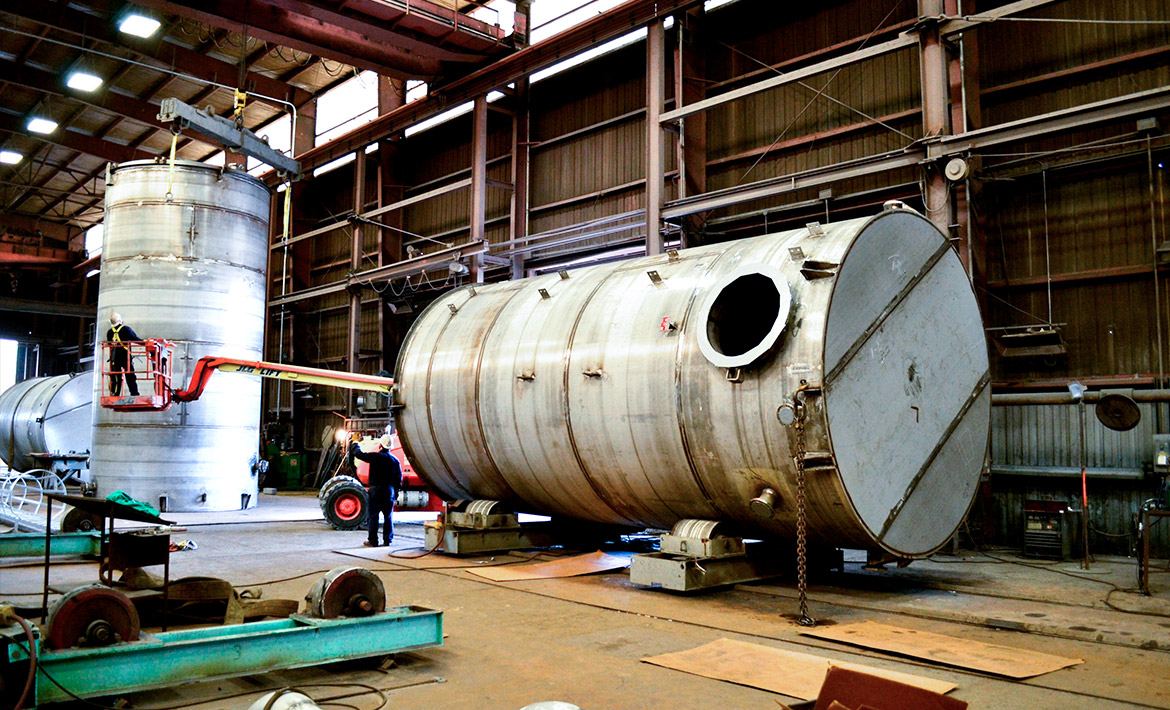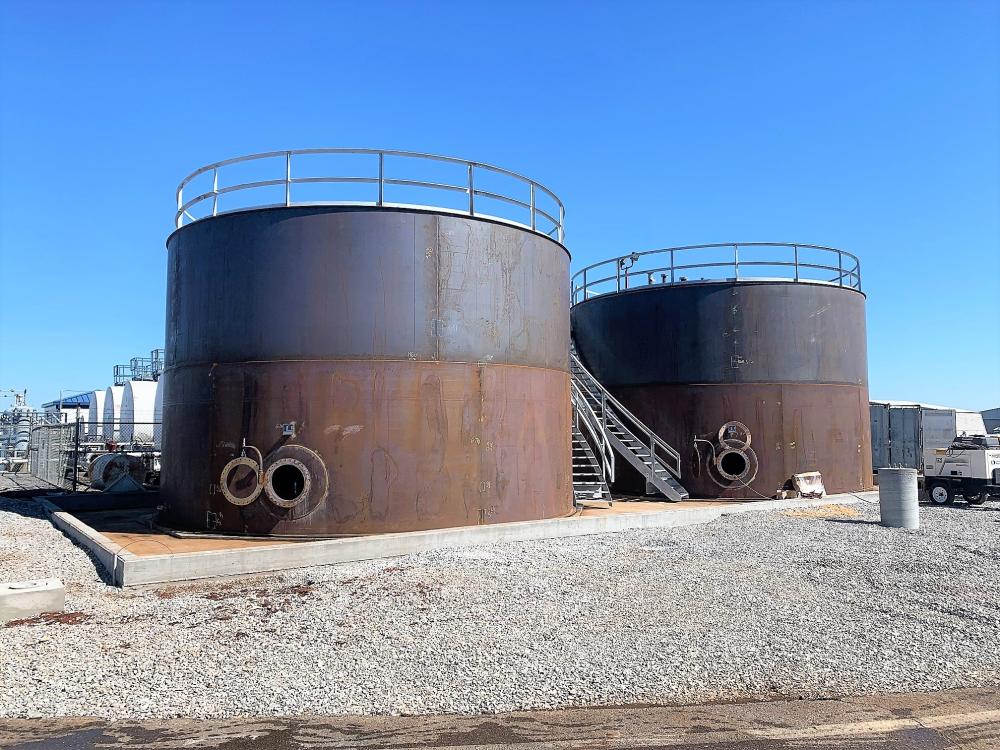The Advantages of Welding Examination for Enhanced Safety and Efficiency
Welding assessments are necessary for ensuring that frameworks meet rigid industry requirements. They play an essential function in recognizing problems early, consequently boosting security and decreasing the danger of tragic failings. In addition, these evaluations can bring about significant cost financial savings by stopping costly repair services and downtime. As companies go for improved performance and reliability, the value of a durable inspection process can not be overemphasized. What various other benefits might arise from a commitment to extensive welding inspections?
Making Certain Conformity With Sector Criteria
Assuring compliance with sector standards is crucial for keeping top quality and safety in welding tasks. Sticking to established methods not just shields workers but additionally boosts the longevity and efficiency of the last item. Welding evaluations conducted at different stages of the procedure help determine any discrepancies from these standards, allowing timely restorative actions. This proactive method minimizes the threat of failings that could arise from low-grade craftsmanship.
In addition, conformity with market requirements promotes trust among stakeholders, consisting of customers, regulative bodies, and the workforce. It indicates a commitment to excellence and liable techniques, which can cause increased service opportunities and an one-upmanship in the market - API 650 Welding Inspection. Regular inspections additionally assure that materials and methods made use of straighten with the most current technological developments and safety guidelines. Eventually, adherence to market criteria is not just a governing need yet a foundation of quality control in welding jobs
Enhancing Security With Early Detection of Flaws
While the primary objective of welding assessments often focuses on conformity, they play a necessary role in improving safety by making it possible for the early discovery of issues. Recognizing issues such as insufficient combination, splits, or porosity during assessments can greatly minimize the risk of disastrous failings. Early detection enables prompt treatments, making sure that malfunctioning welds do not endanger architectural integrity.
In addition, methodical examinations promote a society of security within companies by stressing the value of high quality control. This aggressive approach not just safeguards personnel yet also safeguards the surrounding setting. Routine inspections can reveal fads in problem event, permitting adjustments in welding methods and training programs to attend to underlying concerns.
As a result, welding examinations function as an important guard, boosting general security and performance by identifying defects prior to they intensify right into significant threats. This dedication to quality straight adds to the durability and reliability of welded frameworks.
Minimizing Expenses by Avoiding Failings
By executing extensive welding inspections, organizations can effectively decrease costs connected with failures and revamp. The positive recognition of flaws throughout the welding procedure reduces the threat of disastrous failures that can bring about expensive repair services or substitutes. Early discovery permits timely treatments, which prevents the rise of minor problems right into significant problems that strain budgets and sources. In addition, by making sure that welds meet specified standards, companies can stay clear of hold-ups in project timelines brought on by the requirement for substantial rework or additional assessments later in the procedure. This not only conserves cash however also boosts operational effectiveness. In addition, a track record for quality handiwork can lead to increased customer complete satisfaction and repeat company, further adding to financial stability. Overall, purchasing welding assessments is a calculated method that cultivates cost financial savings while guarding the honesty of bonded structures.
Improving Performance and Longevity of Structures


Welding examinations play an important function in boosting the efficiency and long life of structures, as they verify that welds are performed to the greatest standards. By determining defects early in the welding process, examinations protect against weaknesses that could jeopardize structural integrity. This proactive approach assurances that the materials used satisfy required specs, thus enhancing their load-bearing capability and durability.
In addition, constant surveillance of welding methods contributes to the total high quality of construction jobs. The possibility for exhaustion and failing over time is considerably lowered when welds are validated for conformity with industry standards. Structures that are built with correctly checked welds are likely to experience fewer maintenance problems and enhanced longevity.
Eventually, rigorous welding evaluations not just bolster the prompt effectiveness of a framework but likewise expand its operational life expectancy, giving long-lasting worth to both read more building contractors and end-users alike.
Cultivating a Society of High Quality and Integrity
A commitment to top quality and reliability in welding methods considerably adds to the general success of construction jobs. When companies prioritize these values, they foster a culture that motivates precise interest to information and adherence to sector criteria. This society not just improves the skill level of welders but likewise advertises liability and teamwork among all stakeholders included in the task.

Regular welding assessments function as a foundation in this social shift, strengthening the relevance of regular performance and safety and security actions (API 650 Welding Inspection). By carrying out rigorous inspection protocols, business can determine prospective flaws early, mitigating risks and preventing expensive rework. An emphasis on top quality and integrity instills confidence amongst customers and partners, leading to stronger partnerships and improved credibilities.
Inevitably, promoting a culture of top quality and integrity in welding methods not only boosts job outcomes however also assures long-lasting sustainability and success in the construction sector.
Often Asked Questions
What Credentials Should a Welding Assessor Have?
A welding inspector ought to possess appropriate accreditations, such as AWS CWI or CSWIP. Furthermore, they should have experience in metallurgy, welding processes, and inspection strategies, in addition to solid logical skills and interest to detail for reliable evaluations.

Just How Frequently Should Welding Inspections Be Carried Out?
Welding assessments need to be performed routinely, ideally after each considerable phase of the welding process. Furthermore, regular assessments must take place based upon task needs, solution problems, and regulative requirements to ensure continuous high quality and security.
What Tools Are Used During Welding Inspections?
Welding inspections utilize numerous devices, consisting of ultrasonic testers, magnetic bit testers, visual evaluation tools, and radiographic tools. Each device offers a certain Recommended Site function, ensuring weld quality and architectural honesty with extensive evaluation and assessment.
Can Welding Inspections Be Carried Out Remotely?
Welding inspections can without a doubt be look at these guys done remotely using innovative innovations such as drones and specialized video cameras. These devices make it possible for examiners to assess welding top quality and stability from a distance, boosting effectiveness and safety and security in different environments.
What Are the Usual Kinds Of Welding Defects?
Usual types of welding issues include porosity, cracks, insufficient fusion, damaging, and slag inclusion. These flaws can compromise the honesty and strength of welds, bring about prospective failings in structural applications otherwise dealt with effectively.
Welding evaluations are essential for making sure that frameworks satisfy rigorous industry requirements. Welding inspections carried out at numerous stages of the procedure aid identify any kind of deviations from these requirements, making it possible for timely restorative activities. Welding inspections play a vital role in improving the efficiency and longevity of structures, as they validate that welds are executed to the highest requirements. Welding examinations should be carried out on a regular basis, ideally after each significant phase of the welding process. API 650 Welding Inspection. Welding assessments make use of various tools, including ultrasonic testers, magnetic bit testers, visual assessment devices, and radiographic tools